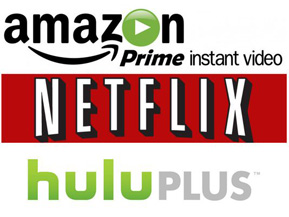|
|
Intermittent Issues: I, For One, Welcome Our New Binary OverlordsBy Ben GruchowNovember 10, 2016
Its catalog is also considerably more muscular than any of its streaming competitors save iTunes, and this has to do with the unique position the company finds itself in with regard to the two main digital-HD pay-per-title providers: Disney Digital (which represents Walt Disney Pictures, its subsidiaries, LucasFilm, and Marvel) and Ultraviolet HD (which represents just about every other major studio in existence). Both of these standards are proprietary, and they don’t play well together - i.e. a Disney Digital title cannot be obtained through the Ultraviolet service, and vice versa. Vudu, however, operates a streaming license with both of these standards, and it is the only Ultraviolet or Disney Digital provider to do so (iTunes does allow streaming, but not outside of the Apple ecosystem). Like iTunes, Vudu offers both rental and sale of most of its movies and TV shows, with prices comparable to what you’d pay for the physical disc. Vudu also chases customers aggressively via constantly updating and revolving sales on its products - generally in connection with a holiday, but also through monthly and bundle deals. For the compulsive Internet shopper or the movie buff, the Vudu storefront—whether by Web or by app—is so alluring and gratifying that it feels almost forbidden; you’re really not sure if you should have linked your credit card to your account, but you suffered through DivX for this kind of opportunity, and by God if anyone or anything is going to stand in your way now.
[ View other columns by Ben Gruchow ]
[ View other Intermittent Issues columns ]
[ Email this column ]
|

|
|
|

|
Friday, November 1, 2024
© 2024 Box Office Prophets, a division of One Of Us, Inc.


